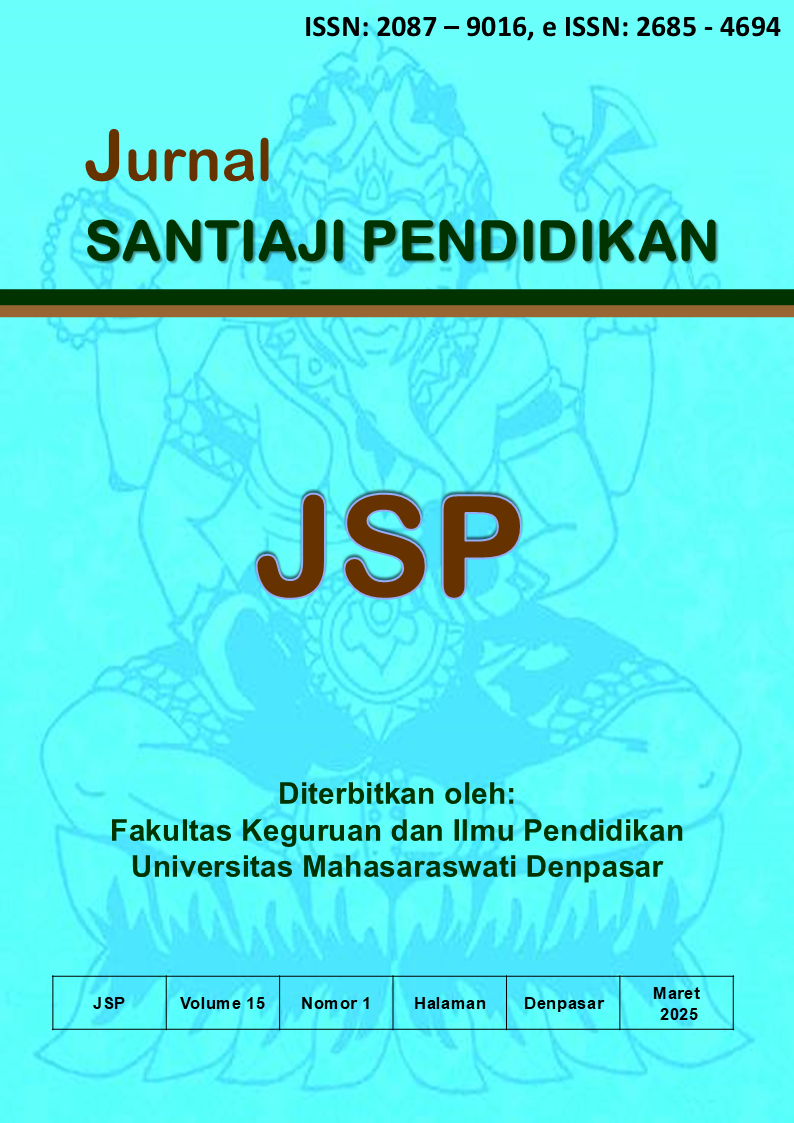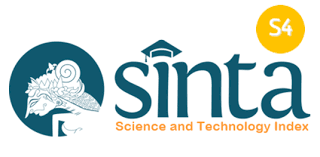THE EFFECTIVENESS OF USING ROLE PLAY METHOD TO IMPROVE THE SPEAKING SKILLS OF CHILDREN AGED 7-10 AS EFL STUDENTS AT EBISIE ENGLISH COURSE
DOI:
https://doi.org/10.36733/jsp.v15i1.11096Keywords:
EFL Education, Motivation, Role Play, Speaking Skills, Young StudentsAbstract
This study investigates the efficacy of the role-playing method in improving speaking skills in children who are studying English as a foreign language (EFL) at Ebisie English Course and range in age from 7 to 10. This study aims to find out how well role play helps young EFL students in developing speaking skills, how role-play activities impact students' motivation to use English, and whether there are any challenges that might prevent role play from being used successfully in the classroom. The study uses a qualitative methodology, evaluating the effect of role play on motivation and speaking skills through observations and both teachers and students’ opinions. According to research, role play greatly improves students' speaking abilities by creating a lively and attractive learning environment that also increases intrinsic motivation. In addition to improving language learning, role play also encourages social interaction and minimizes levels of stress in learners, according to the discussion of the data. This study offers a conceptual and empirical contribution by highlighting the importance of active learning methods in learning a language and providing examples of successful teaching methods for young EFL students.
Downloads
References
Anhalt, C. O., Staats, S., Cortez, R., & Civil, M. (2018). Mathematical modeling and culturally relevant pedagogy. In G. Kaiser, W. Blum, R. Borromeo Ferri, & G. Stillman (Eds.), ICME-13 Monographs: International Perspectives on the Teaching and Learning of Mathematical Modelling (pp. 307–330). Springer. https://doi.org/10.1007/978-3-319-66659-4_14
Brandt, A., & Chernoff, E. (2014). The importance of ethnomathematics in the math class. Ohio Journal of School Mathematics, 71, 31–36. https://library.osu.edu/ojs/index.php/OJSM/article/view/4314
Darmayasa, J. B., Wahyudin, W., & Mulyana, T. (2019). Ethnomathematics: Operasi bilangan bulat pada aturan “Petemuan” masyarakat Bali. Mathematic Education and Application Journal, 1 (1), 1–7. https://doi.org/10.35334/meta.v1i1.834
Freire, P., & McCray, A. D. (2020). Pedagogy of the oppressed. Bloomsbury Publishing.
Gutierrez, R. (2017). Embracing the inherent tensions in teaching mathematics from a critical sociocultural perspective. Journal for Research in Mathematics Education, 48 (1), 5–13. https://doi.org/10.5951/jresematheduc.48.1.0005
Nasir, N. S., Hand, V., & Taylor, E. V. (2008). Culture and mathematics in school: Boundaries between “cultural” and “domain” knowledge in the mathematics classroom and beyond. Review of Research in Education, 32 (1), 187–240. https://doi.org/10.3102/0091732X07308962
Nasir, N. I. S. (2021). Racialized epistemologies and mathematics education: A framework for advancing equity. Journal for Research in Mathematics Education, 52 (1), 130–139. https://doi.org/10.5951/jresematheduc-2021-0011
Nur, A. S., Sukestiyarno, Y. L., & Junaedi, I. (2019). Etnomatematika dalam perspektif problematika pembelajaran matematika: Tantangan pada siswa indigenous. Prosiding Seminar Nasional Pascasarjana Universitas Negeri Semarang, 910–916.
Rachmawati, I. (2012). Eksplorasi etnomatematika masyarakat Sidoarjo. MATHEdunesa, 1 (1). https://doi.org/10.26740/mathedunesa.v1n1.p%25p
Richardo, R. (2016). Peran ethnomatematika dalam penerapan pembelajaran matematika. *Literasi, 7 (2), 118–125. http://dx.doi.org/10.21927/literasi.2016.7(2).118-125
Roche, A., Gervasoni, A., & Kalogeropoulos, P. (2023). Factors that promote interest and engagement in learning mathematics for low-achieving primary students across three learning settings. Mathematics Education Research Journal, 35 (3), 319–345. https://doi.org/10.1007/s13394-021-00402-w
Rosa, M., & Orey, D. C. (2011). Ethnomathematics: The cultural aspects of mathematics. Revista Latinoamericana de Etnomatemática, 4 (2), 32–54. http://www.redalyc.org/articulo.oa?id=274019437002
Semiawan, C. R. (2010). Metode penelitian kualitatif: Jenis, karakteristik dan keunggulannya. PT Grasindo.
Siregar, S. (2013). Metode penelitian kuantitatif. PT Fajar Interpratama Mandiri.
Sugiyono. (2014). Metode penelitian pendidikan: Pendekatan kuantitatif, kualitatif, dan R&D. Alfabeta.
Ubah, C. M., & De Abreu, G. (2019). Ethnomathematics and the African diaspora: Culturally situated learning, communities of practice, and identity. The Journal of Negro Education, 88 (2), 138–150. https://doi.org/10.7709/jnegroeducation.88.2.0138
Downloads
Published
Issue
Section
License
Copyright (c) 2025 Anak Agung Ayu Mas Sukmawati, I Gusti Ayu Lokita Purnamika Utami, Made Hery Santosa, Ni Made Ratminigsih

This work is licensed under a Creative Commons Attribution 4.0 International License.











